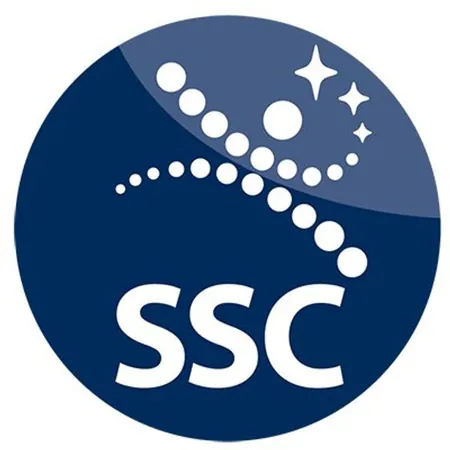
Breaking Barriers: Sweden's SubOrbital Express-4 Launches Six Groundbreaking Science Projects into Space!
2024-11-26
Author: Mei
In a remarkable feat for space exploration, one of the year's most anticipated rocket launches took place at SSC’s Esrange Space Center, located north of the Arctic Circle in Sweden. The SubOrbital Express-4 successfully carried six groundbreaking science projects into microgravity, advancing research in diverse fields ranging from medicine to energy and the mysteries of life itself.
With the countdown reaching zero at 6 AM local time, the SubOrbital Express-4 soared to an impressive altitude of 256 kilometers. The six experiments aboard were able to operate in the weightlessness of space for a precious six minutes, which is crucial for obtaining reliable scientific data. After an extensive preparation period of over two years, researchers from the United States, Japan, Germany, the Netherlands, Finland, and Sweden witnessed their pioneering work take off into the snowy expanse above.
Among the innovative experiments was MicACTin, which focuses on understanding how the human immune system reacts to microgravity—a vital area of study considering the potential for long-duration space missions. Another project, LiFiCo, aims to enhance solar cell technology to support the green energy transition, which is of paramount importance as the world strives for sustainable energy solutions. Additionally, DUST-II investigates the formation and growth of tiny particles of dust in space, which could shed light on the birth of our universe.
The payload also featured JACKS, which studies the behavior of granular gases in microgravity, and BFS, a project examining how gravity variations affect biological processes in bladderwrack, a type of seaweed. Finally, TATTS aims to capture video footage of water's unique movements in a microgravity environment, providing insights that may have applications in both space exploration and technology back on Earth.
Charlotta Sund, CEO of SSC, expressed pride in the successful launch: “Our sounding rocket program, SubOrbital Express, provides researchers and commercial companies with quick and easy access to microgravity. The discoveries made through these projects could yield long-term benefits for humankind.”
The European Space Agency (ESA) is also heavily involved, with Director of Human and Robotic Exploration, Daniel Neuenschwander, endorsing the project during his visit. He highlighted ESA’s support for three of the missions—one in biological science and two in physical science—while expressing optimism for future exploration activities that Esrange can facilitate.
As recovery operations commence, with the payload being quickly located and retrieved by helicopter, the excitement around these significant scientific endeavors continues to grow. This launch not only demonstrates Sweden's increasing role in international space research but also hints at a promising future where these experiments may lead to transformative advancements for our planet and beyond. Stay tuned for updates on the discoveries that will emerge from this momentous mission!





 Brasil (PT)
Brasil (PT)
 Canada (EN)
Canada (EN)
 Chile (ES)
Chile (ES)
 España (ES)
España (ES)
 France (FR)
France (FR)
 Hong Kong (EN)
Hong Kong (EN)
 Italia (IT)
Italia (IT)
 日本 (JA)
日本 (JA)
 Magyarország (HU)
Magyarország (HU)
 Norge (NO)
Norge (NO)
 Polska (PL)
Polska (PL)
 Schweiz (DE)
Schweiz (DE)
 Singapore (EN)
Singapore (EN)
 Sverige (SV)
Sverige (SV)
 Suomi (FI)
Suomi (FI)
 Türkiye (TR)
Türkiye (TR)